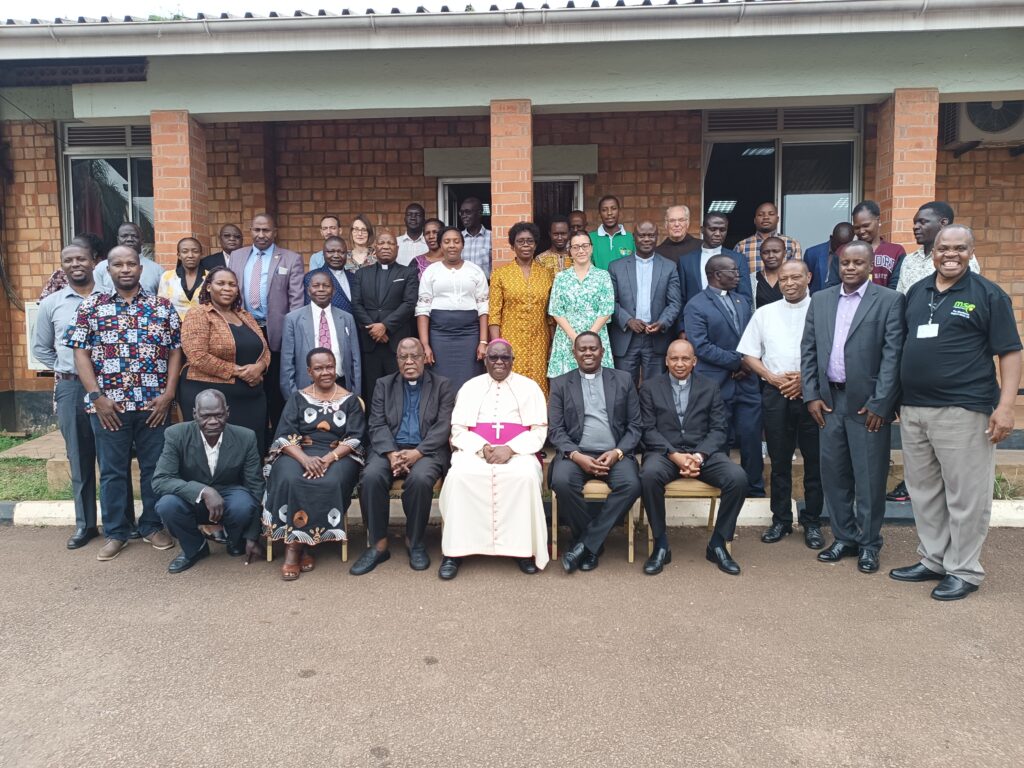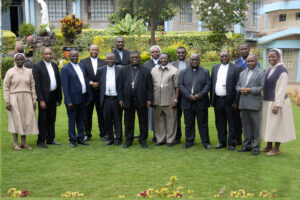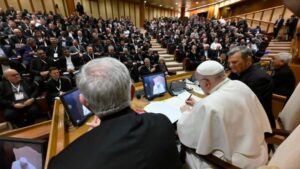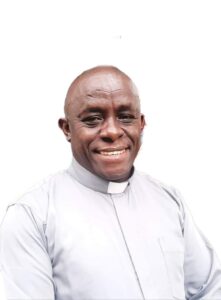AMECEA: Environmental Concerns on EACOP Construction “be Observed,” says Prelate

Sr. Jecinter Antoinette Okoth, FSSA
At a recent workshop focusing on the implementation of Laudato Si’ guidelines and creating awareness on Pope Francis’ Encyclical Letter Fratelli Tutti in the region of the Association of Member Episcopal Conferences in Eastern Africa (AMECEA), Catholic Prelate has stressed on the observation of environmental concerns during the construction of East African Crude Oil Pipeline (EACOP).
The EACOP is a pipeline that, once constructed, is expected to transport crude oil produced from Uganda’s Lake Albert oilfields to the port of Tanga in Tanzania.
Sharing his message with various groups of participants drawn from the AMECEA region including Justice and Peace National Directors, Caritas and Parliamentary Liaison officers (CPLos), Uganda Diocesan coordinators, Mother Earth Network (M-E- Net), Catholic Youth Network for Environmental Sustainability in Africa (CYNESA) and Laudato Si’ Movement, Archbishop John Baptist Odama emphasized that AMECEA through the department of Promotion of Integral Human Development (PIHD) should take up the responsibility to ensure that amidst this massive project of EACOP, Laudato Si’ guidelines are implemented.
“All the environmental concerns related to the construction of East African Crude Oil Pipeline [EACOP] raised by different stakeholders should be observed especially given the method of transportation through a heated pipeline,” Archbishop Odama the Chairman for Caritas Commission/Justice and Peace for Uganda Episcopal Conference (UEC) said during the meeting which took place in Kampala Kolping hotel, Uganda.
He added asking the government of Uganda to listen to peoples voices and be open for dialogue saying, “Our attention is drawn to the various voices regarding the Pipeline both at the local and international levels. We strongly encourage the Government of Uganda to listen more to the voices from those speaking in favor of the cry of the poor and mother earth whose livelihoods are to be affected by the project.”
“AMECEA and National Justice and Peace Commissions in Uganda and Tanzania should pay special attention to sustainable exploration methods which respect the rights of citizens… and take keen interest in the process of EACOP and the subsequent transportation of oil and gas products through the pipeline across the East African region and ensure that whatever is done must not jeopardize ecology and creation as clearly stated in ‘Laudato Si,” he said.
Referencing Encyclical Letter Laudato Si’ where Pope Francis reminds the people of God who should be responsible stewards that they have turned against creation and that humanity has plundered the resources in the environment taking themselves to be the masters, the Archbishop of Gulu Archdiocese has highlighted that, “Priority must be accorded to safeguarding the common good and preserving a stable climate for the future of both humanity and the rest of other God’s creation in order to achieve the desired objective of intergenerational equity.”
“We have forgotten that we are dependents on earth,” The Prelate lamented and narrated further, “The preoccupation with consumption has made mankind to destroy the environment without caring for the needs of future generation.”
 According to Archbishop Odama, attention has been drawn to some injustices that may occur to the most vulnerable persons and ecology especially through the proposed EACOP which will affect especially those in Uganda and generally in East Africa.
According to Archbishop Odama, attention has been drawn to some injustices that may occur to the most vulnerable persons and ecology especially through the proposed EACOP which will affect especially those in Uganda and generally in East Africa.
In this case he said, “We are optimistic that the Government of Uganda will manage well this mega and sensitive project” and, “Aware that the pipeline has been planned to go through ecologically sensitive areas that include both human settlement and bio diversity which is most likely to hamper not only agriculture and wild life but also human settlement, these are serious concerns which ought to be addressed in a timely and sustainable manner.”
As the plans are underway for construction of the pipeline, the Archbishop suggests that “all the people affected should be properly compensated and/or resettled in a manner that safeguards their dignity and promotes their social and economic development.”
To address the concern that that fossil fuel and biodiversity collapse is detrimental to ecology, the UEC Chairman for Caritas Commission/Justice and Peace proposed an “urgent need for a clear plan towards a gradual transition to clean energy.”
“It is therefore imperative to allocate a reasonable amount of resources from the oil and gas Sector towards technological innovations related to promoting clean energy. We therefore affirm and continue to support government efforts with regard to further investment in clean energy,” the Ugandan Prelate underscored.
He appreciated the existence of oil and gas in East Africa which is a precious resource whose proceeds should be used for the good of all the people of Uganda as “there is big money expected from the oil sector.”
Based on this fact, “There should be an advance clear, transparent and accountable plan for the equitable distribution of the revenue from oil and gas.”
Besides, “The Government should properly indicate in a transparent manner to what extent this revenue will be geared towards the common good for the benefit of the people of Uganda,” he said and continued, “The revenues should enable us move forward from poverty and underdevelopment to a country that is transformed to reduce the gap between the rich and the poor.”
Addressing nearly 40 participants during the four-day workshop held from 22-26th February, the Archbishop notes that the resources will also have challenges related to transparency and accountability.
“Considering our history where we have had a number of corruption related scandals and mismanagement of public resources, there is still high level of anxiety among the populace that the proceeds from oil may not be used in a transparent manner,” he bemoaned and proposed, “Because of this, safeguards have to be put in place considering the long term economic and social welfare of the people in East Africa.”
Besides Pope Francis coming out strongly on care of creation, “St. John Paul II in 1990, delivered his World Day of Peace message where he noted the lack of due respect for nature, and also a new ecological awareness.”


